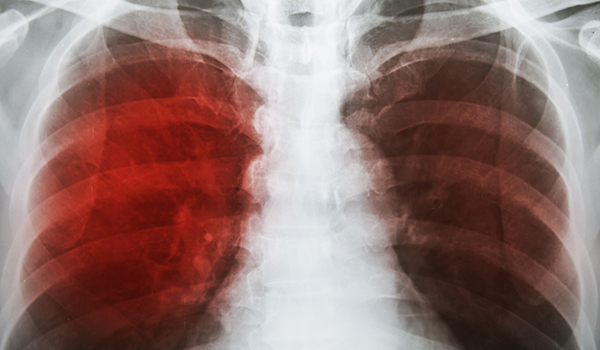2020-04-02
A key component of delivering new antibiotics to market is ensuring that they are used appropriately. To learn how this can be done, ReAct looked into how bedaquiline, a new anti-tuberculosis drug was introduced in South Africa. A key learning point from the project was that the requirements for sustainable use of antibiotics correlate with the building blocks of a strong health system – health systems strengthening and responsible use of antibiotics go hand in hand.

Tuberculosis

Tuberculosis is an infection affecting the lungs and is caused by the bacterium Mycobacterium tuberculosis. According to estimates from WHO, about a quarter of the world population is infected and thus at risk of developing disease. Most people getting tuberculosis can be cured if a diagnosis is set timely and a proper treatment is given. However, tuberculosis is still a major cause of poor health and mortality globally. Recommended first-line therapy is a combination of isoniazid, rifampicin, pyrazinamide and ethambutol during six months. A very common problem is defaulting, that patients stop taking their medication and coming to follow-ups.
Of great concern is the problem of drug-resistant tuberculosis, where the infecting bacterium becomes resistant to one or more of the drugs in the first-line therapy. Second-line therapies are often more expensive, require injectable drugs of which some are more toxic for the patient and take longer to treat. Globally, around 500,000 new cases of drug-resistant cases occurred during 2018.
Bedaquiline
Bedaquiline is one of few new drugs to treat tuberculosis. It targets the ATP synthase that provides energy for the mycobacteria. Inhibition of the enzyme results in depletion of available energy in the bacteria resulting in bacterial death. Recommended dosage for an adult is 400 mg once daily for two weeks, followed by 200 mg three times per week (with at least 48 h between doses) for the next 22 weeks.
Resistance to bedaquiline is still rare but has been described in a few patients. The main cause of resistance seen in South Africa is induction of efflux pumps in the bacteria that remove bedaquiline from the bacterial cells.
The most severe adverse reactions to bedaquiline observed in clinical trials are liver damage and effects on the heart, visible as QT prolongation in an ECG. The QT interval is a measure of how long it takes for the ventricles of the heart to contract and relax again, and abnormal QT intervals can be associated with sudden cardiac death albeit no such deaths have been confirmed. Therefore market authorization required robust monitoring of cardiac and liver function.
Bedaquiline also has interactions with other drugs that are of significance in a TB population, such as efavirenz (HIV medication), rifampicin (TB drug) and ketoconazole (antifungal). All of these can reduce the exposure to the drug resulting in poor treatment outcomes or even treatment failure. Thus, drugs used together with Bedaquiline need careful selection and staff that are sufficiently educated to make the clinical judgements.
New drugs and health systems

We have drawn some key learnings from the South African introduction of bedaquiline through the lens of the WHO Health Systems building blocks. The elements involved in a controlled introduction are all included in the components of a functioning health system:
- service delivery,
- health workforce,
- information system,
- access,
- financing,
- leadership and
- governance.
However, it requires effort and will to put these key functions in the work – the WHO Health Systems building blocks do not automatically entail an environment where medicines can be introduced and used judiciously. Often champions that are passionate about proper use of antibiotics are needed throughout the system, from healthcare workers up to those responsible at the government levels.
New drugs and stewardship
A particular difficulty with introduction of new antibiotics lies in stewardship – the need to use the antibiotic in a manner that preserves its efficacy over time and reduces the rate of resistance development. To achieve this, guidelines, training, diagnostics and some level of control over prescription practices are key. Also, surveillance of resistance development is an important factor that should not be forgotten. It requires laboratory capacity and ensuring that there is a method available to test for susceptibility to the new drug.
Another factor is expansion of indication, which is especially difficult to control for when the new drug is safer or more effective than the older alternatives. In South Africa the expansion occurred rapidly after bedaquiline was on national tender – and with good reason, given the advantageous safety and efficacy profile. However, a rapid expansion of indication is not always desirable, especially if it leads to faster development of resistance. In the case of tuberculosis, the development of resistance is further complicated by the long treatment times of several months that still leads to patients defaulting on their treatment, only to return later with a bedaquiline-resistant infection.
A comprehensive approach needed
In all, the experiences from South Africa point to the need of a comprehensive approach that cuts across all components and levels of a health system and highlights the role of passionate champions that drive the process and search for consensus. As new antibiotics become available, it will be important to facilitate access to those in need of them, while on the same time ensure that it is done in a responsible and controlled way to avoid inappropriate use. Strong political will, financial and technical support for health systems strengthening are critical to the long-term sustainability of introducing and managing new antibiotics for quality healthcare.

Download full ReAct Report
Learning from Experiences: Introducing Bedaquiline in South Africa
Further reading

ReAct Toolbox
Learn more: Rational use initiatives work to prevent harm, improve patient safety and work to reverse increasing rates of antibiotic resistance.
More news and opinion from 2020
- Nurse Dorce, Indonesia: Treating small patients with much love and infection prevention – a success story
- ReAct highlights during World Antimicrobial Awareness week 2020
- ReAct Asia Pacific: Winners of 2020 photography competition
- WAAW ReAct Africa: Engaging civil society and students
- WAAW in Indonesia: Focus on One Health approach to AMR
- Innovate4Health’s 32 finalist teams: For social innovations to address emerging infectious diseases!
- ReAct Open Letter: 5 key points to One Health Global Leaders Group on Antimicrobial Resistance
- New ReAct Report: Treatment of newborn sepsis is threatened – effective antibiotics essential
- Upcoming ReAct Africa Conference: What is the status of the NAPs on AMR in the African region?
- Animal welfare and antibiotic resistance in food animals
- ReAct activities for World Antimicrobial Awareness Week 2020
- Dr. Honar Cherif: My patients can receive 5-10 courses of antibiotics during their cancer treatment
- New ReAct Report: Antibiotic resistance affects men and women differently
- ReAct Asia Pacific: Photo competition for students – health in focus
- 4 take aways from WHO’s first global report on sepsis
- Launch of global student design sprint – Innovate4Health
- World Sepsis Day – antibiotics essential in treatment of sepsis
- The new Pharmaceutical Strategy for Europe – an opportunity to put public interest first
- 4 key reflections on the recently launched WHO GLASS-report
- Key points from ReAct’s comments to the Independent Panel on Evidence
- ReAct Interview: From zoologist to community engagement on AMR
- ReAct Africa expands
- COVID-19 resolution – a missed opportunity to address global pandemic response more broadly
- What everyone needs to know about clinical research
- New ReAct Policy Brief: Successful cancer treatment relies on effective antibiotics
- Impact of COVID-19 on vaccine-preventable diseases and antibiotic resistance
- ReAct Africa and Africa CDC: COVID-19 webinars
- Antibiotic pollution: India scores a global first with effluent limits
- COVID-19 and AMR – what do we know so far?
- Learning from bedaquiline in South Africa – comprehensive health systems for new antibiotics
- ReAct Interview: How does antibiotics in food animal production end up in the environment?
- Key take aways from CSO workshop on AMR in Kenya
- New fact sheet: Effective antibiotics – essential for childrens’ survival
- Shortages and AMR – why should we care? 4 consequences of antibiotic shortages
- Our microbiome and noncommunicable diseases
- The 2020 AMR Benchmark Report – concerning findings with questionable framing
- 4 key reflections from engaging hospitals in India for antibiotic stewardship
- Teacher Gustavo Cedillo, Ecuador, teaches children about the bacterial world
